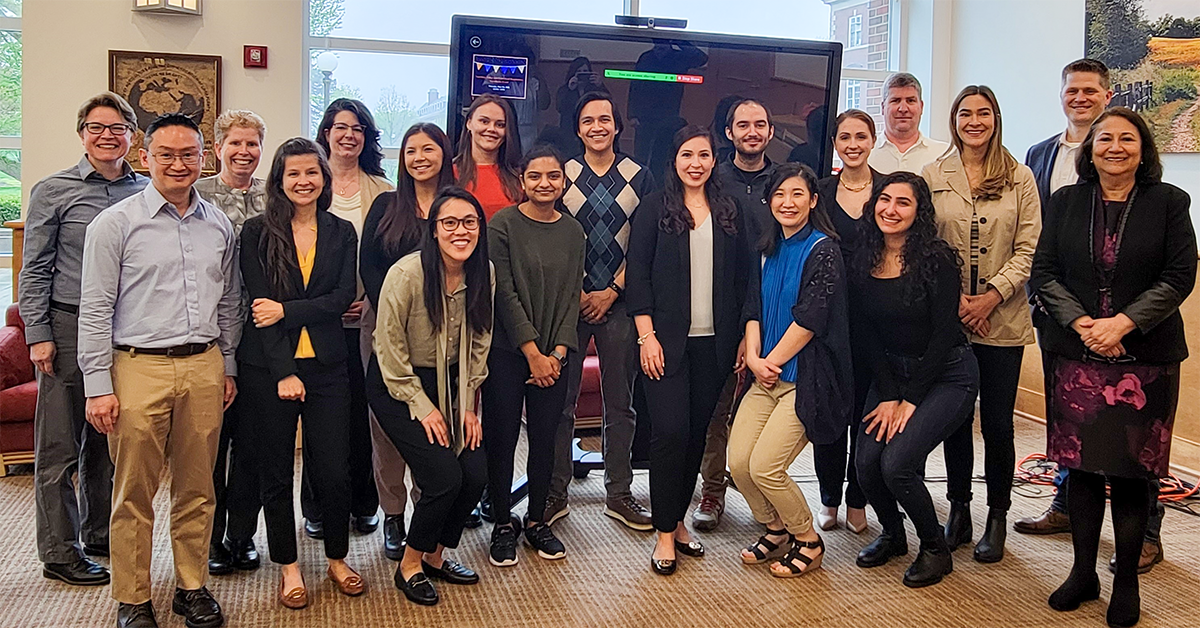Filling industry gap, U of I program trains professionals in food policy

URBANA, Ill. – Right now it’s infant formula, but food recalls are seemingly always in the news. When recalls happen, industries and supply chains can slam to a halt, causing everything from minor inconvenience to illness to, in the case of infant formula, widespread food insecurity for the youngest in our population.
Avoiding these outcomes takes science, technology, and a keen understanding of food laws and regulations at the state and federal level. But few food and nutritional science professionals receive formal training in policy.
A new certificate program at the University of Illinois fills that gap.
“In the U.S., we have all these food safety regulations, yet we still have people sent to the hospital and dying due to foodborne illnesses. Many professionals working for the food and feed industries get absolutely no training on food regulations. We realized there was a need to train food, nutritional, and animal sciences professionals to have a full understanding of food and feed regulations and how they are implemented,” says Elvira de Mejia, director of the Division of Nutritional Sciences (DNS) in the College of Agricultural, Consumer and Environmental Sciences (ACES) at U of I.
De Mejia’s team received a USDA Higher Education Challenge Grant in 2020 to start a pilot Nutrition Policy and Food/Feed Regulations certificate. The program offers several new courses taught by an interdisciplinary lineup of ACES professors and industry professionals, but recent students say a program highlight is its required mentorship component.
“Having a mentor helps you get to know the job environment, as well as the expectations and skills required for an industry position. A mentor also serves as an advisor and helps to improve your networking skills,” says Jessica Nicanor Carreón, a recent graduate of the program whose mentor was from PepsiCo.
Alex Baldeon, another recent graduate of the program, agrees.
“The mentoring part of this certificate program made it a great experience,” he says. “I was lucky to have a mentor from the National Institutes of Health’s Office of Nutrition Research, and through our meetings, I learned more about the policy that surrounds nutrition research at the federal level. She also helped me network with other scientists involved in policy work.”
Still in its pilot phase, the program is open only to current U of I graduate students, but phase two will move the courses online, where they will be available to non-degree-seeking students anywhere. Phase three will translate the courses and deliver them to Spanish-speaking countries that supply the U.S. with produce and other foods.
Nicanor Carreón can speak to the value of phase three. “I’m an international student, so the certificate helped me a lot to better understand U.S food regulations and the role of a nutrition scientist in industry,” she says.
Debra Korte, director for learning innovation and e-learning in the Office of Academic Programs in the College of ACES, is excited for the program to expand beyond U of I.
“Considering the degree of success the in-person pilot version has had and the amount of positive feedback we've received from students, the next logical step is to offer it online to a global audience,” she says. “This certificate perfectly defines collaborative, cross-disciplinary efforts to provide a holistic experience for students.”
Phase two could happen as soon as the program obtains funding from the USDA or enters a collaborative agreement with industry partners. Check back at the certificate page for updates.
Most other U.S. food policy programs are short courses or intensive workshops, but the Nutrition Policy and Food/Feed Regulations certificate is a year-long program with three required courses and at least one elective to serve the diverse interests of students. In addition to coursework, students have the opportunity to see where policy happens: Washington D.C.
“A summer course, Applied Nutrition Policy, takes students to Washington D.C. for a firsthand experience talking to professionals in government and nongovernmental organizations. They get to see how policies are made and what science-based information is needed to implement them. The experience, along with the rest of the certificate, provides students with the training to support regulatory needs and to solve challenges of food and agriculture for many years to come,” de Mejia says.
The certificate is one of more than two dozen graduate and undergraduate certificate options in the College of ACES. They include adulting, cannabis production, companion animal nutrition, dietetics, sustainability and justice in food and environmental systems, and many more.
“Our certificates focus on very specialized areas of need for industry professionals to earn credentials that will help them to be successful on the job. They can also be used, in many cases, to stack towards an online master's degree in multiple disciplines,” Korte says.